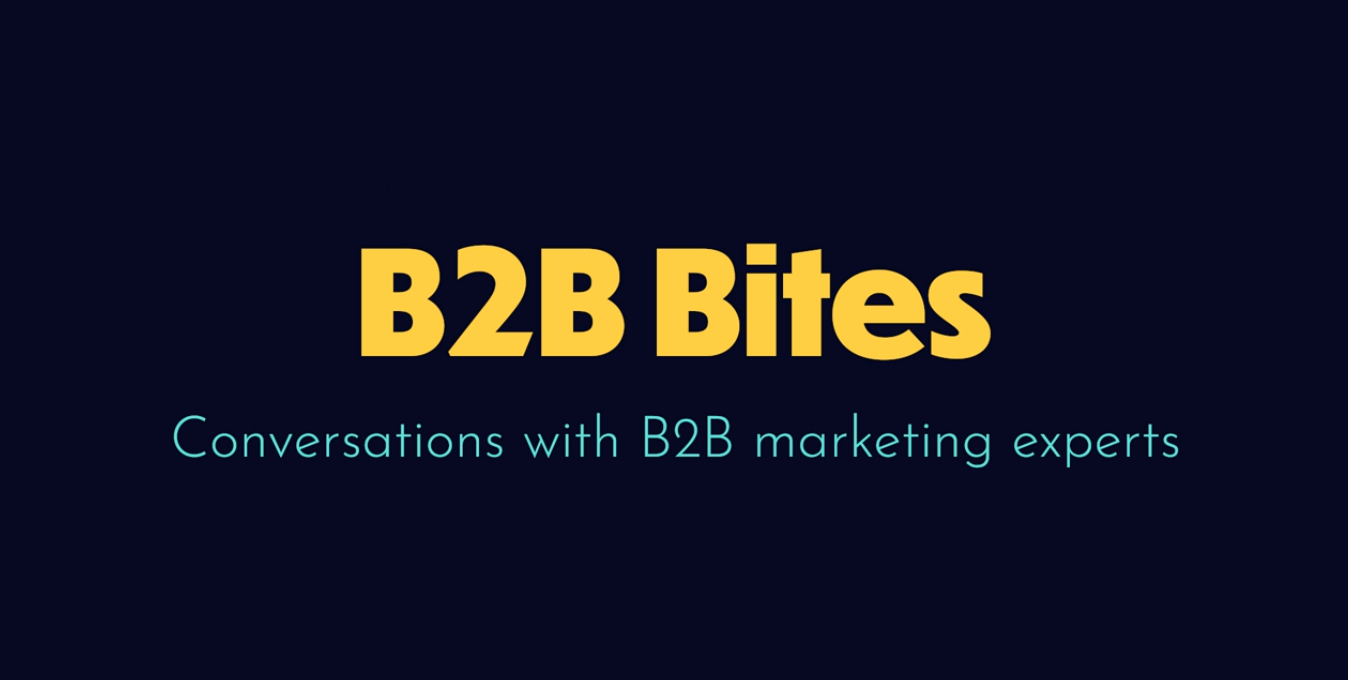Here at Squaredot, we talk a lot about B2B marketing strategy and also the importance of storytelling.
So when Tristan Pelligrino, co-founder of US-based Motion Video got talking to us about storytelling and marketing strategy together, we were all ears.
Americans do things big. They spend big. They consume big. They dedicate massive amounts of their marketing budgets to advertising. A prime example of this is TV advertising spend on Super Bowl commercials, where advertisers barely bat an eyelid at splashing $4 m for a 30-second slot.
What’s really interesting is why the rest of the world care about the Super Bowl.
It’s an American sport. The only teams that compete are American. American football is, well, American. So why is the Super Bowl such an important event on the global marketing calendar? Tristan explains: ‘For advertisers that nail their critical 30 seconds in the spotlight, they can go down in history as one top Super Bowl commercials of all time’.
But what lessons can B2C - and B2B brands - learn from the people doing blockbuster, multi-million dollar advertising campaigns?
Over to you, Tristan.
Well, one of the best and most sure-fire ways is to tell a great story. While epic Super Bowl commercials range from Budweiser's long form "Up For Whatever" series in 2014 to Apple's "1984" in - appropriately enough, 1984 - to Mean Joe Greene's "Hey Kid, Catch" commercial for Coca-Cola in 1979, the one thing they all have in common is a great story.
Here are 10 winning reasons you want to add storytelling to your marketing strategy.
1. STORIES CONNECT YOUR BRAND TO MEMORABLE EMOTION
As speech maker Carl W. Buehner once said, “They may forget what you said—but they will never forget how you made them feel.” A great story has a way of inspiring deep emotion in humans. By associating your brand with a great story, you also associate your brand with that emotion. The Guinness company clearly understood this concept. In a genius marketing strategy, they created this spot that never even hints at the brand until the very end of a truly memorable story, thus indelibly connecting their brand to the emotions it inspires.
2. GREAT STORIES GET WATCHED, REWATCHED, SHARED, WATCHED MORE AND SHARED MORE
If there is any holy grail even more coveted than a Super Bowl spot that gets talked about by millions of viewers, it's the coveted viral video. Great stories have a way of going viral. In 2012, director Casey Neistat pitched a commercial to Nike for their Fuel Band launch. Nike signed off and handed over a budget - which Neistat took and ran with. Literally. Neistat and editor Max Joseph took off on an epic 10 day adventure covering numerous cities across multiple continents and filmed every minute of it. What resulted was an epic travelogue that garnered nearly a million views within just the first 24 hours.
3. STORIES GET REMEMBERED - ALONG WITH YOUR BRAND
Let's face it, we can all remember the punchline to probably a million jokes - although almost never when someone asks us to tell one. Many of our most memorable childhood events are not actually memories at all, but are actually just stories that we have been told over and over. Stories were how history was passed down for millennia and stories are often what connect us as humans. That means when you tell a great story that people remember, they also remember your brand right along with it.
4. STORIES PUT A FACE ON YOUR BRAND
In the 2000 movie Castaway, Tom Hanks' character develops an intimate bond with a volleyball. This deep need for connection we all feel can sometimes lead us to do something called "anthropomorphizing." This is when we imbue inanimate objects - or brands - with human characteristics. Major brands from Geico to KFC have given faces to their companies in the form of talking Geckos and a wide cast of characters bringing the famed Colonel Sanders to life, establishing both connection and loyalty to their brand.
5. STORIES THAT MAKE A LASTING IMPRESSION
There are few people that don't remember sleepovers from childhood and one of the most memorable activities from most of those sleepovers was lying awake under the cover of darkness telling stories. No matter how much technology we have, it will be a long time before children do not carry memories of sitting around with their buddies or best girlfriends in the dark, telling stories. After the lights go out and the technology gets turned off, humans have an innate tendency to return to the primal. Stories are one of the most primal ways in which human beings crate connection with each other. In fact, those boys or girls you sat around telling stories with may remain some of your best friends to this day. Or at the very least, they are probably friends you will never forget.
6. STORIES SELL YOUR BRAND IN A WAY THAT IS NON-THREATENING
One of the most dreaded experiences for many people is having to deal with an overly pushy or aggressive salesperson. The truth is, none of us like having to say no. Aggressive sales people know how to manipulate customers into giving them a yes - which many customers later resent. Stories are a great way to introduce your product to consumers in a way that is non-threatening, non-aggressive and not "pushy."
7. STORIES HELP COMMUNICATE FEATURES IN A WAY THAT IS PERSONAL
While people do enjoy knowing certain facts, figures and statistics about products, they don't actually connect with facts, figures and statistics. While incorporating brand messaging into television shows is nothing new, car manufacturers in particular have found a new way to almost seamlessly weave important features of their products right into some of America's favorite storylines. A long string of hit TV shows have characters demonstrating how to use everything from back-up cameras to parking assistance features to onboard navigations systems right within the context of the story.
8. YOUR CLIENT'S STORIES ATTRACT OTHER CLIENTS
At the end of the day, no matter how big your advertising budget is, nothing is actually going to sell your brand like your own clients and consumers. Research shows that 91% of people regularly or occasionally read online reviews, with 84% of them trusting online reviews as much as a personal recommendation. The personal experiences and stories of your customers will go far further to sell your brand than any advertising ever will.
9. OUR BRAINS CRAVE STORIES
When we read hard, cold facts, only the language parts of our brain light up. When we read a story however, all of the same parts of our brain light up that would be lit up if we were actually experiencing what we are reading about. That is the power of imagination. Great storytelling doesn't just result in a great story, it actually takes us on an adventure and that adventure is something we crave. When you tell your consumers a great story - they remember, and they remember your brand right along with it.
10. GREAT STORIES ARE LIKE CRACK - PEOPLE KEEP COMING BACK FOR MORE
Very few bestselling authors only have one bestselling book. Even though we know that the sequels to movies are generally disappointing in comparison to the original, we keep flocking to theaters to see them. Why? Because great stories are like crack. We can't get enough of them. Tell a great story and your clients and consumers will just keep coming back for more, more, more.
About The Author:
 Tristan Pelligrino
Tristan Pelligrino
Tristan Pelligrino is the co-founder of Motion Video, a national video production company focused on helping businesses reach their audience through video content. He started his career as an IT consultant working for large organizations like PricewaterhouseCoopers, IBM, and Oracle. After an early career in consulting, Tristan branched out to create a leading regional video production company and digital marketing firm, and he is now focused on spearheading the growth of Motion Video.TOR









